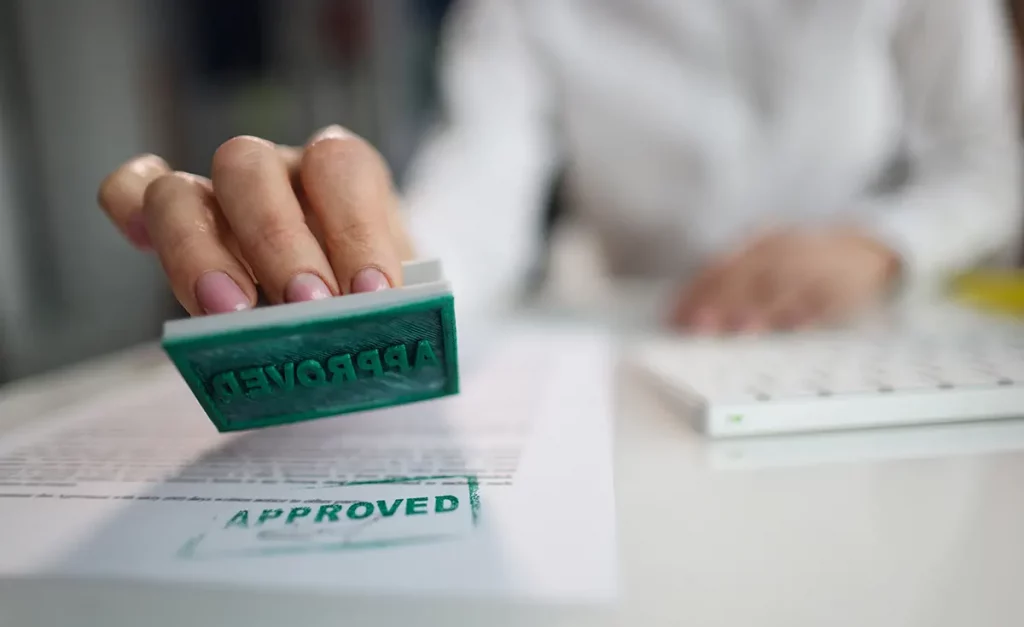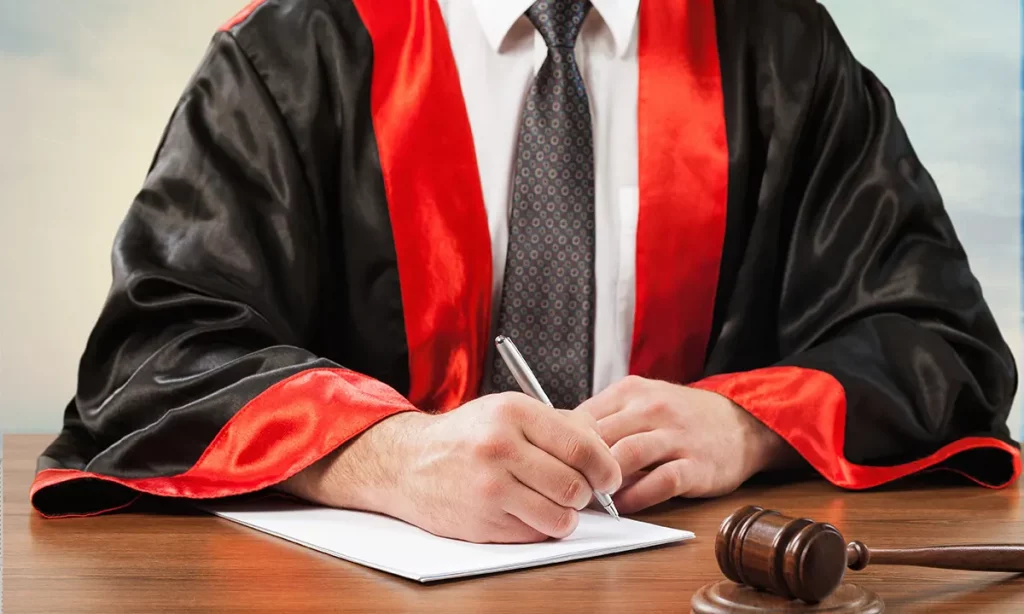Notarizing for Minors
Contrary to what may be the belief, you can notarize a minor’s signature. Like any other signer, the minor will need to appear in person before the notary and be identified satisfactorily. No matter the age, personal appearance is always required. If a minor cannot provide a government-issued proof of identification, I.D. card, or passport, a credible witness is needed to verify the minor’s identity. A learner’s permit is an acceptable form of proof to verify the identity of a minor. It is a government-issued proof of identity that includes a picture, date of birth, address, and signature of the minor.

The number of credible witnesses required will depend on each state’s notary law. The witness must not be the minor’s parent, and all witnesses will need to show valid identification. When credible witnesses are used to verify the identity of a minor, the notary must administer the credible witness oath, “Do you swear under penalty of perjury that you know (the minor’s name) and that he/she is the person whose signature needs to be notarized?”
The notary may want to consider completing the Affidavit of Identity of Credible Witness to document the verification of identity transaction. Not all states require this, but those that do will determine how and when this should be used. If the minor’s identity can be established, then the notary can proceed with the notarization.
When providing services to a minor, always remember that the minor must understand the transaction and can intelligently communicate this. You can notarize a minor’s signature, the minor must understand and act of his/her own free will. The notary should always exercise caution when dealing with minors and any documents related to them. It is important that the notary remains professional and courteous at all times.
The Minor Must Understand the Importance of the Notarial Act
Follow these steps to make sure the minor understands what they’re signing:
- Explain to the minor that a notary has to ask the signer questions to make sure they understand what they are signing and that they are signing the document freely and for the right purpose. Notarize a minor’s signature.
- Suppose the minor can be identified, and they confirm that they understand and agree to what they are signing and understand the importance of why the document has to be notarized. In that case, the notary can proceed with the notarization.
Once you’ve clearly outlined the process, take the standard action of reviewing the document to be notarized, checking for any blank spaces, completing the notarial certificate, and having the minor and their credible witness sign their notary journal. This will allow you to notarize a minor’s signature.
Finally, make sure you clearly explain to the minor that if they have any questions or concerns in the future, they should contact a legal professional. This will ensure that all parties are informed and educated on their rights, responsibilities, and potential liabilities. This is an important part of the notarization process for minors as it helps them understand the impact of their notarized document and builds trust between the minor and the notary.
By following these steps, you can ensure that minors understand why their documents need to be notarized, as well as what implications this could have in case of any future disputes. This will create a safe environment for both the notary and the minor while establishing trust between all parties involved. This safeguards the notary’s reputation as it shows that they are taking great care to make sure minors understand what they are signing. It also allows for a smooth and successful transaction for both parties, making sure everyone is on board with the process.
How do you Record the Notary transaction in your Notary Journal?
The notary journal should include the minor’s name, address, place of notarization, the type of notarization, and the credible witness should be selected for identity verification. Both the minor and credible witnesses should sign the notary journal. If no credible witness was used, the notary would choose the appropriate type of identification used, and only the minor will need to sign the notary journal.
The notary must also include the date and time of the notarial act and any fees collected. It is important to note that the notary journal should be kept in a secure place and remain confidential due to its sensitive nature. After the notarization has been completed, it is recommended that you provide the minor with a copy of their Notary Journal, which serves as a legal record of the transaction.
By following these steps, you will be ensuring that all transactions involving minors are properly documented and safeguarded in accordance with state laws. This is an important step towards protecting vulnerable individuals and upholding the integrity of the notary profession.
What is the Youngest age that a Notary can Notarize a Minor’s Signature?
There is no minimum age unless stated in your specific notary state laws. However, the notary needs to use good judgment before proceeding in order to notarize a minor’s signature. As long as the minor can be adequately identified by either valid identification or by a credible witness, can read the document to be notarized, and understand what they are signing and the reason for the notarization, the notary can proceed with the notarization.
If the minor cannot read the document or are mentally incapable of understanding the reason for the notarization because they are not mature enough to understand, then the notary should refuse it.
Additionally, if the document is not in the minor’s best interest or could have negative legal consequences for them, then the notary should refuse to serve as well. It is important that a Notary takes all necessary precautions when dealing with minors.
In cases where a minor may be present but an adult is signing on their behalf, it is important to make sure that the adult has the legal authority to do so. It is also important that the notary follows all state-specific rules and regulations surrounding notarizing minors. In some states, additional steps may need to be taken in order to properly execute a document on behalf of a minor.

Why Can’t the Parents Be Credible Witnesses?
Credible witnesses need to be disinterested parties who have no interest in the transaction or business of the document. It’s difficult to determine that a parent wouldn’t have an interest in the document, so credible witnesses must be someone other than a parent.
It is not up to the notary to determine why the parent cannot sign. If the minor shows up with a document to be notarized, the notary does not have the legal authority to decide who would best fit to sign on the minor’s behalf. Unless a notary is an attorney or working under the guidance of an attorney, the notary does not have the expertise or training to advise about who should sign the document for the minor. The notary’s job is to verify the minor’s ability to understand and sign the document and ensure that the minor understands what they are signing.
The notary can only confirm that a credible witness was present during the signing of the document.
The primary reason why a parent cannot be a credible witness is to prevent fraud and coercion. By using another adult as a witness, there is less chance that someone with an interest in the transaction or business of the document could pressure or influence the minor to sign the document. The notary is responsible for ensuring that the minor signs willingly and understands what they are signing.
To notarize a minor’s signature and notarize for a minor, in general, is not very different than notarizing for a signer who is over the age of 18. Remember, the minor has to appear in person before the notary, present acceptable proof of identification, understand what they are signing and why, and be able to read the document and sign the document. Additionally, if the minor does not have proper identification, the notary can use a credible witness other than a parent to verify the minor’s identity. If these above conditions aren’t met, the notary should refuse the notarization.
This article may raise questions about how to notarize a minor’s signature & forms of ID. Please read our article A Quick Guide to Notary Public Forms of Identification.

Kim Jones
Notary Roc City Notary Services
Kim Jones is a veteran mobile Notary and Notary Signing Agent with over 15 years of experience. Kim is the Owner and Operator of Roc City Notary Services in upstate NY.
Notary Jane: Kim Jones
Instagram: @roccitynotary
Website: RocCityNotary.com

